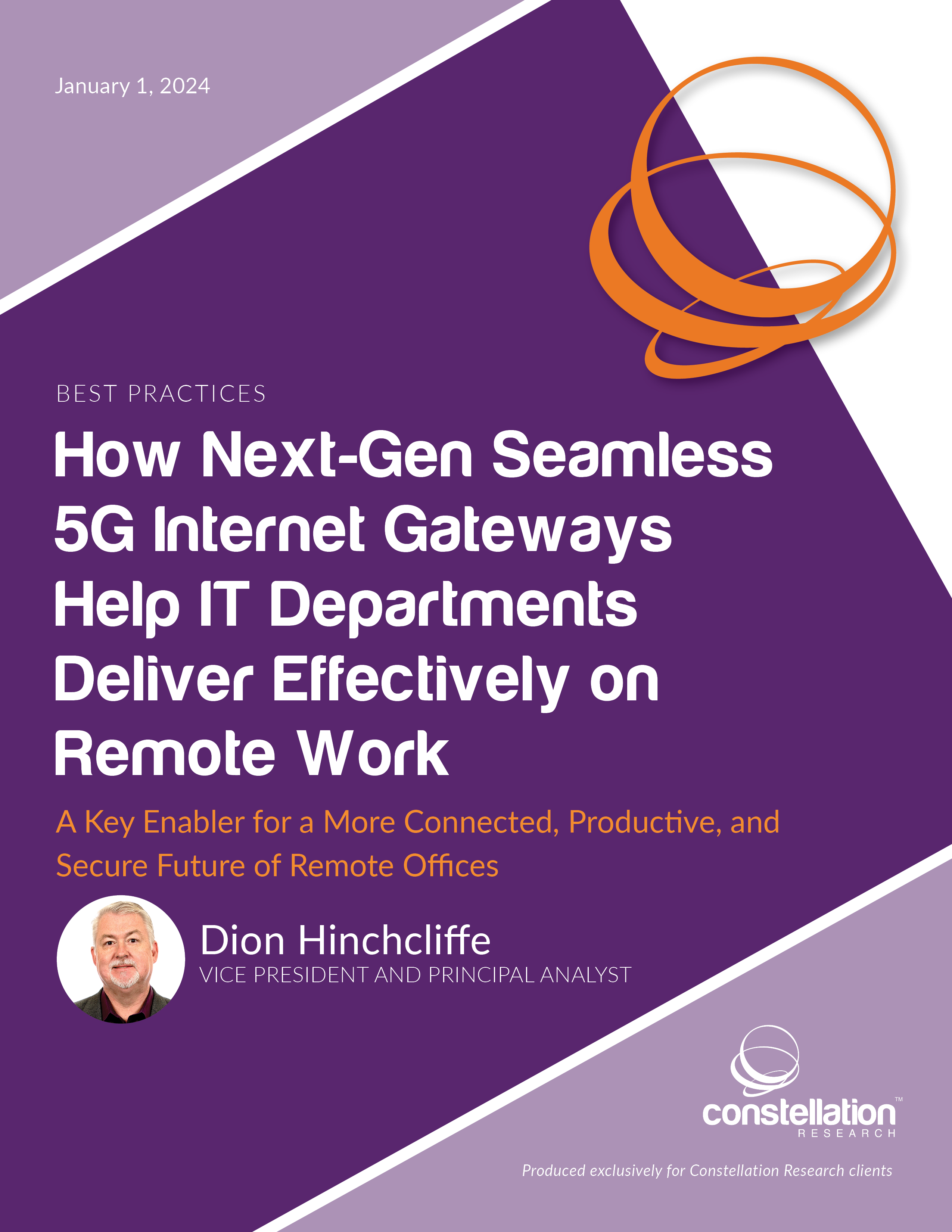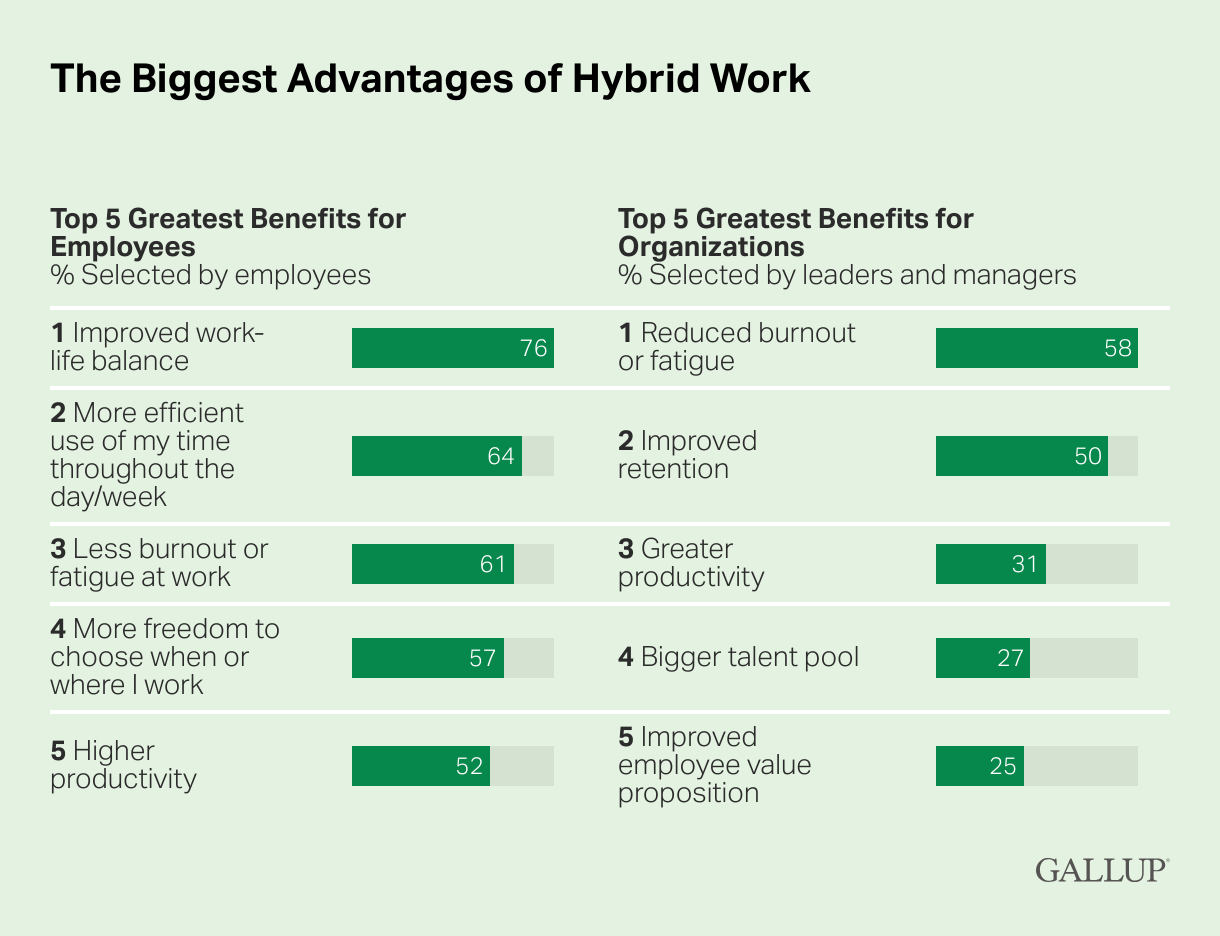 The rise of hybrid work has thrown open a pandora's box of possibilities, but also unleashed a tangle of challenges for IT departments struggling to keep remote, in-office, and flexible employees seamlessly connected. In the scenario unfolding today, next-generation 5G wireless Internet access has emerged as a genuine enabler, promising to redefine hybrid work flexibility, efficiency, and security.
The rise of hybrid work has thrown open a pandora's box of possibilities, but also unleashed a tangle of challenges for IT departments struggling to keep remote, in-office, and flexible employees seamlessly connected. In the scenario unfolding today, next-generation 5G wireless Internet access has emerged as a genuine enabler, promising to redefine hybrid work flexibility, efficiency, and security.
The traditional office network, tethered to physical desks and legacy wireless connections, now feels archaic in the face of today's dynamic workforce. Imagine attending a crucial client meeting from a comfortable local co-working space, collaborating on real-time documents from home, or seamlessly transitioning between remote office and central office without missing a beat. 5G's fast bandwidth, ultra-low latency, and vast capacity make such scenarios not just feasible, but highly performant and smooth.
But the benefits of 5G go beyond mere connectivity. In my latest research report on delivering on hybrid work, I explore how next-gen 5G internet gateways -- an example being the widely-used Verizon 5G Business Internet Gateway -- can equip IT departments to tackle the unique challenges of hybrid work.
The crux is success in such hybrid work scenarios is making sure the worker has the capabilities and that it's well supported by the IT department. In my research, supporting the IT department in delivering a high quality hybrid work experience with 5G is a critical succes factor. Imagine a portal that provides real-time visibility into network performance across all hybrid work locations. No more scrambling to diagnose connectivity issues across a scattered patchwork of Wi-Fi hotspots and poorly provisioned regional offices. The such a support portal simplifies network management, security operations, and governance, allowing IT to proactively identify and resolve problems before they disrupt a remote employee's workflow.
But it doesn't stop there. Security concerns abound in the hybrid landscape, with company data potentially accessible from countless public networks. In my exploration of using 5G to unleash hybrid work, I found that solutions like Verizon's VBI Portal can empoower IT to enforce granular security policies across all devices and locations, ensuring every connection adheres to the highest standards, regardless of where the employee is working.
The Data Says: It's a Hybrid Work Future
Industry data speaks volumes. A recent study by Upwork revealed that 64 million Americans performed freelance work in the past year, an all-time high, highlighting the growing number of independent professionals who contribute to hybrid teams. Add to that the vast majority of workers, namely 79% of employees who report they crave more flexible work arrangements in a large Cisco survey. It's clear that hybrid work is not just a trend, it's the future. A new Gallup study found that the top five benefits of hybrid work to both employers and workers is productivity:
And 5G, fully unleashed with enabling management support tools for the IT dpeartment, such as Verizon's VBI Portal, holds the key to unlocking its full potential. Imagine a world where employees can sustainablly work seamlessly from anywhere, unburdened by connectivity troubles, secure in the knowledge that their data is fully protected. It's a world where productivity soars, collaboration transcends boundaries, and workers can focus innovation, which is specifically unleashed by the agility and flexibility of 5G networks.
Robust 5G Infrastructure A Vital Enabler of Hybrid Work
Yes, infrastructure challenges remain. But with continued investments in 5G networks and IT-friendly management tools, hybrid work scenarios once deemed futuristic are now within reach. End-user computing teams and digital employee experience leads are now in a position to embrace the flexibility and efficiency that 5G enables, and empower IT departments with the tools they need to support it all. My finding: The future of work is wireless everywhere, and it's more readily achievable than ever before with today's enabling capabilities.
Benefits of 5G management capabilities for IT departments, like the VBI Portal:
- Real-time network visibility and performance insights across all hybrid work locations.
- Centralized management and troubleshooting of devices and connections.
- Granular security policy enforcement to protect company data.
- Simplified deployment and support of hybrid work technologies.
As I conclude in the report, "5G unlocks a future where collaboration and productivity defy physical boundaries." And it's not just about speed – the report sheds light on another vital revelation: 5G gateways can unleash virtual networking and resource sharing in real-time, effectively merging disparate physical spaces into a single, dynamic work environment, but only if the right infrastructure is provided.
This research, soon to be publicly available, is a clarion call for IT departments to step up and become champions of hybrid work. By embracing 5G and its empowering tools, they can shed the shackles of traditional network management and orchestrate a symphony of productivity across continents. It's time to rewrite the rules of work, ditch the limitations of the physical office, and unleash the boundless potential of a truly connected, global workforce. The future is wireless, and the future is here today. I urge IT departments to be at the forefront, guiding the way to this high-potential future of work.
My Related Research
A Comprehensive Guide to the Future of Work in 2030
Report: The Leading Trends in Visual Collaboration
An Update on Enterprise Low-Code in 2023
Keynote Video: Anatomy of a Next-Generation Digital Workplace with AI
Updating the Next-Generation Digital Employee Experience for 2024
How to Embark on the Transformation of Work with Artificial Intelligence
The Future of Work Trends for 2024
How Leading Digital Workplace Vendors Are Enabling Hybrid Work
Recent Vendor Coverage: Future of Work
Microsoft Mesh in Teams: Can its New Avatars Bridge the Hybrid Divide?
Analysis: Box's Acquisition of Crooze Stands to Accelerate Customer Innovation
WalkMe in 2023: Adoption as Table Stakes in Digital Experience
Analysis: Microsoft’s AI and Copilot Announcements for the Digital Workplace
Constellation Research Presents the 2023 Enterprise Awards
Salesforce in 2023: Implications for IT and AI Adopters



